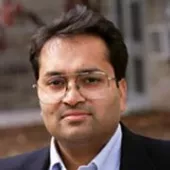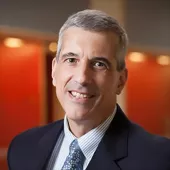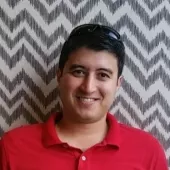May 27, 2021
This course was recorded on May 27, 2021. Registering now gives you access to listen to the recording.
Time
10:00 am - 12:00 pm
Location
Virtual, Pacific Time,
United States
Abstract
Fabrication in the cleanroom, and in the newer printed electronics tools, are often a function of time-varying parameters of the equipment, environment, and materials. The parameters often have co-dependencies across different process steps and tool sets. Physics based models and linear regression have been used traditionally, which are often not sufficient to learn the underlying variabilities.
This course will teach the material needed to connect cleanroom and printed electronics science and technology to that of advanced data processing capabilities enabled by Artificial Intelligence and Machine Learning. Cleanroom tools inherently can have millions of internal variables and can learn from the datasets, providing a powerful and complementary approach to traditional feedback control and process stabilization approaches.
Learning models are developed on images (CD-SEMS, optical images), time history data (Optical Emission Spectroscopy), and textual process information. A subset of the class will include: (1) Approaches to preprocess image data and create learning-based models, (2) model verification, (3) application to nanomechanical switch fabrication, and (4) cloud based implementation, data security, and data standardization.
1. Introduction – The need for AI in microfabrication and printed electronics
a. Microfabrication: Tool variability, process variations
b. Printed Electronics: Inkjet variations, spatial variations
2. Fabrication and data collection
a. Metrology
b. Fabrication equipment data
c. Cleanroom data
3. Data and image processing
a. Types of data
b. Time-dependent data
c. Spatially varying data
d. Size of data
e. Computational capabilities
4. AI and machine learning algorithms
a. Regression
b. Binary trees
c. Random forests
d. Deep Neural Nets (e.g. Image to Image translation using Pix2Pix)
5. Results and outlook
a. Improvement in linewidths
b. Cloud based implementations
About the Instructors
Amit Lal
Amit Lal is the Robert M. Scharf 1977 Professor in the School of Electrical and Computer Engineering at Cornell University, Ithaca, NY. His work has resulted in new fabrication approaches and architectures in Micro/Nano-Electromechanical Systems, Physical Acoustics and Ultrasonics, Inertial Sensors, Biomedical MEMS, Analog Circuit Design, Solid-State Electronics, Radioactive Thin Films for Autonomous Microsystems, and Nanofabrication. The current focus of his research is on: (1) Gigahertz Ultrasonic for chip-scale communications, sensing, and computation, (2) Near zero power sensors for long-lifetime IoT, (3) Ultrasonic inertial sensors based on surface acoustic waves.
Peter C. Doerschuk
Peter C. Doerschuk is a professor in the School of Electrical and Computer Engineering and the Meinig School of Biomedical Engineering at Cornell University in Ithaca NY. His interests in signal and image understanding have resulted in new algorithms for a variety of problems from microfabrication to single-particle cryo electron microscopy of biological particles.
Benyamin Davaji
Benyamin Davaji is a postdoctoral research associate in the School of Electrical and Computer Engineering at Cornell University. Ben works with Prof. Amit Lal at SonicMEMS Laboratory on developing solid-state acoustic wave inertial sensors, ultrasound neuromodulation microdevices, event-powered sensors, and methods to use machine learning and artificial intelligence to enhance micro and nanosystem design and manufacturing. He is the recipient of the 2019 Cornell achievement award for excellence in mentoring and the 2016 MEMS shark pub tank prize at the Hilton Head Conference. Before joining Cornell, Ben worked with Prof. Chung Hoon Lee on microthermal analysis and thermal microfluidic systems at Nanodevices Laboratory at Marquette University and received a Ph.D. in electrical engineering. During his Ph.D., he received the 2014 IEEE Larry Hause award and the 2014 College of Engineering outstanding TA award.
Flexible Hybrid Master Classes are offered on many topics! Visit this page for entire list and links to more detailed information on each one.
Featured Speakers



SEMI Members: $49
Use your corporate email address during log in to be recognized as a SEMI Member.
Non-Members: $99
Students: Free
Contact Gity Samadi (gsamadi@semi.org) with a picture of your student ID to receive your discount code.
